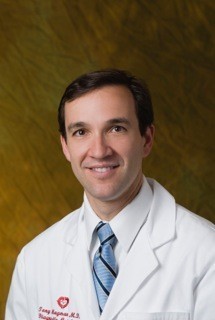Dangerous binge drinking linked to holiday heart syndrome
Gatherings with family and friends are sure to yield memorable moments, but they may also bring worrisome health concerns into focus.
Every year around the holidays, emergency rooms note an influx of otherwise healthy patients presenting with symptoms of Atrial Fibrillation (AFib). This phenomenon is known as “holiday heart syndrome” and is most closely associated with a spike in binge drinking commonly seen this time of year.
Symptoms of AFib can be frightening: rapid heart rate, shortness of breath, fainting, fatigue and heart palpitations. But what’s most concerning is the increased stroke risk for individuals with AFib. In fact, individuals with the arrhythmia are five times more likely to suffer from a stroke.
Fortunately, for many, temporary AFib linked to holiday heart syndrome will resolve itself, but it’s important to know the signs and be wary of binge drinking this season.
Binge drinking and your heart
Holiday heart syndrome was first reported in the early 1970s when researchers noted the association between binge drinking and the onset of AFib in individuals who were generally healthy.
Binge drinking is defined as the intake of more than four servings of alcohol in a two-hour span for women and more than five drinks in the same time period for men. While the habit tends to be associated with a younger crowd, it is common among all ages — especially during holiday gatherings.
Because alcohol causes blood pressure to rise rapidly, people may be at risk of not only developing seasonal AFib, but also triggering a heart attack in those with underlying or undiagnosed heart issues.
It’s important to note that the effects of binge drinking can last longer than the evening’s festivities. In fact, a Harvard research review found that binge drinking six or more drinks in one night may raise a person’s risk of cardiovascular events for an entire week after consumption.
How to minimize your risk
Luckily, you don’t have to skip the celebratory drinks altogether to protect your heart.
Moderate drinking can actually produce various positive benefits, including reduced risk of heart attack and stroke. “Moderate,” however, is probably a lot less than you may think. The American Heart Association recommends only one to two servings of alcohol per day for men and up to one full serving of alcohol per day for women.
It’s also important to consider the type of alcohol you choose to consume. Red wine is a smart choice over holiday staples like eggnog, which is packed with fatty calories and high amounts of cholesterol.
If you notice any signs of a cardiac event while enjoying yourself this holiday season, be as proactive as possible. Call 911 immediately for medical emergency symptoms such as chest pain, heart palpitations, shortness of breath or a cold sweat.
It pays to be mindful of how you treat your heart this time of year. Taking care of your body’s most vital organ will help keep you around for many holiday seasons to come.
Dr. Anthony Magnano is a Ponte Vedra resident and cardiac electrophysiologist at St. Vincent’s Medical Center Riverside. For more information on Dr. Magnano and his specialty treating Atrial Fibrillation, visit AfibJax.com.







